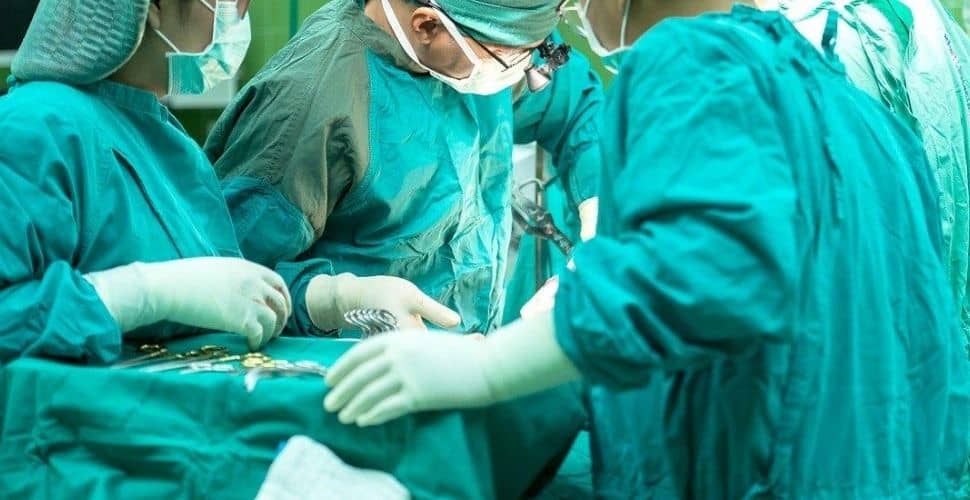This article was originally published in Thomson Reuters Foundation.
Forced organ harvesting and organ trafficking are interlinked crimes not often associated with the UK. Yet medicines manufactured with human tissue from forced organ harvesting victims could be imported into the National Health Service due to the absence of consent and comprehensive traceability regulations.
Victims of forced organ harvesting are subject to abuse and torture. Organs are forcibly removed without consent or through coercion, to then be used in transplants. They are sold illegally to a market of buyers – many of whom may be unknowingly paying for a trafficked organ and unaware of their role in perpetuating a system of forced organ harvesting. Trafficked organs and human tissue could also be used in the manufacture of medicines and medical research. Current consent and documentation measures to prevent this in the UK are inadequate as they only apply to tissue sourced within the UK.
In March this year, the independent China Tribunal, chaired by Sir Geoffrey Nice QC, who was knighted for his services to international criminal justice, issued its judgment on allegations of forced organ harvesting of ethnic minorities and prisoners of conscience in China, including Uyghurs and Falun Gong practitioners. The Tribunal Judgement confirmed that the tenebrous market of human organs and tissue is a state-sanctioned project in China, where in many cases innocent victims who are persecuted based on their beliefs are subsequently tortured and their organs removed whilst still alive.
Numerous lines of evidence including testimonies from medical professionals, former detainees and others, collected and analysed by the Tribunal, provided disturbing accounts of individuals being killed for the purpose of having their organs forcibly removed for the illegal organ trade. The Tribunal concluded that “thousands of innocent people have been killed to order having their bodies – the physical integrity of their beings – cut open while still alive for their kidneys, livers, hearts, lungs, cornea and skin to be removed and turned into commodities for sale.”
Whilst the Tribunal’s judgment propelled the crimes of forced organ harvesting and organ trafficking into the public consciousness, organ trafficking is not limited to China. other organ trafficking hotspots exist in India, Pakistan, Turkey, Brazil, Nepal, the Philippines, Kosovo, Iran, and former Soviet states in eastern Europe.
Criminal gangs and traffickers operating outside of legitimate systems exploit people made vulnerable by their need for financial resources or their irregular immigration status. The fear of deportation or threats from traffickers have been used to coerce individuals into selling their organs. Once the organs are obtained, victims are often abandoned with no aftercare and at high risk of developing serious health complications, even dying as a result.
In the UK, efforts to tackle these crimes are underway. Lord Hunt of Kings Heath and Baroness Finlay of Lladaff are backing an amendment to the Medicines and Medical Devices Bill that would give the relevant authorities in the UK the power to prevent human tissue and medicines manufactured from forced organ harvesting victims from entering the UK health system. Having progressed through the House of Commons, the bill proceeds to its second reading in the House of Lords on September 2 where we hope the amendment will be adopted.
In addition, the UK has yet to join a small handful of countries in passing domestic legislation specifically aimed at tackling organ transplant tourism. When an estimated 28 percent of organs go to foreigners traveling to China, it is clear that there is a domestic responsibility for other countries to curb transplant tourism and stem the demand for illegally sourced organs.
Forced organ harvesting is a form of human trafficking where, once again, the most egregious human rights abuses are acted out on the bodies of the most marginalized and systemically disempowered. Global efforts to implement domestic legislation are needed to tackle organ transplant tourism that partly drives the demand for organs abroad. Freedom United, the International Coalition to End Transplant Abuse in China and the Human Trafficking Foundation are urging world governments to pass national legislation so as to be better equipped to tackle forced organ harvesting at the international level.
It is incumbent on the UK and governments around the world to recognise their responsibility to not only firmly denounce forced organ harvesting but support their outrage with definitive action.







-
Follow us on Facebook
5.6M
-
Follow us on Twitter
32K
-
Follow us on Instagram
8K
-
Subscribe to our Youtube
5.7K
Donate